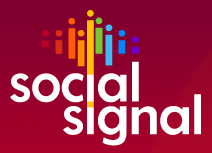- Home
- Blogs
- Rob Cottingham's blog
- Selectively filtering comments? You may not get away with it for long.
Selectively filtering comments? You may not get away with it for long.
- 30 March, 2008
- 2 comments
You've just pruned the comments in your company's blog for comment spam, libel, hate speech, pornography and other abuse. But just as you're about to close the laptop, you spot one last comment.
It isn't abusive - but it's sharply critical of your organization, and touches a nerve. How easy it would be to just reeeeeeach over and click the "delete" link...
Think again. Admin privileges may give you the ability to win any argument on your own site just by silencing your opponents (or editing their comments to read "Good lord, now I see! How could have ever disagreed with you? Thank you, thank you for setting me straight.").
But your ethical compass is probably already swinging insistently in the other direction just thinking about it. And apart from the ethics involved, your community will almost certainly suffer.
Now there's another reason: you could get caught.
Progressive U.S. magazine The Nation recently ran a little test:
We posted about 50 comments on the candidates' websites and YouTube accounts, ranging from bland encouragement to policy criticism to sharp complaints. Only the McCain Campaign posted every comment.
McCain's website had no problem with this feedback, for example:
Doesn't understand how to save workers from losing their livelihoods to globalization—I don't care what he says!
Meanwhile, both Democratic candidates rebuffed the same comment.
The Nation's investigation also bore out one of the things we often tell clients who are feeling skittish about allowing critical comments on their site: the conversation is happening anyway, and when critics strike, your supporters will rally to your side.
Clinton's homepage declined to post a comment claiming her health care plan would not "cover all Americans." The McCain and Obama sites accepted the same comment, drawing several rebuttals from supportive commenters. On Obama's site, five replies defended the health care plan on policy terms, while one person admonished the poster for spreading "Hillary talking points."
Check out the full story here.
But once you've done that, let me know if you're left with the same uneasy feeling I felt.
As glad as I am that someone's keeping tabs of the authenticity of the conversations taking place on the presidential sites (and as much as I love The Nation), I'm more than a little concerned about the use of phony comments to do it.
There's something just a little disconcerting about reading "Our fake commenters have exposed your fake discussions!"
Work Smarter with Evernote

Get more out of Evernote with Alexandra Samuel's great new ebook, the first in the Harvard Business Press Work Smarter with Social Media series!



Comments
Sue says
Hey Rob,
This is an interesting read, thanks! We get a small but growing number of comments on cpaws.org, and the most difficult comments to make a judgement call on are those with strong partisan leanings. A charity has to be scrupulously non-partisan. Even with a disclaimer, it makes me very nervous to hit publish on a comment that says "$Politician is wrong on this issue, I support $Otherpolitician!" Any thoughts?
Anonymous says
It seems to me you have answered your own question. "A charity has to be scrupulously non partisan" therefore it is very clear cut and there is no judgement call to make, print it. and as this article advises, there may be comsequenses. remember that many people feel very strongly about freedom of speech (even if they disagree). Many people in your country and mine (UK) have given their lives to protect this right, and i would risk mine for the same.